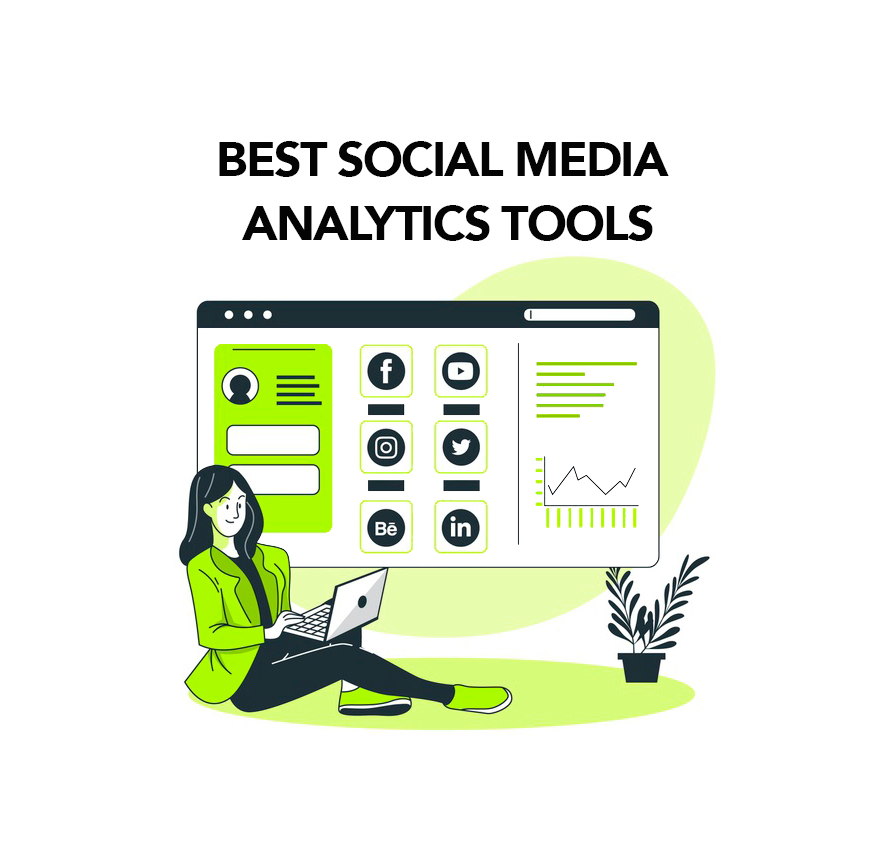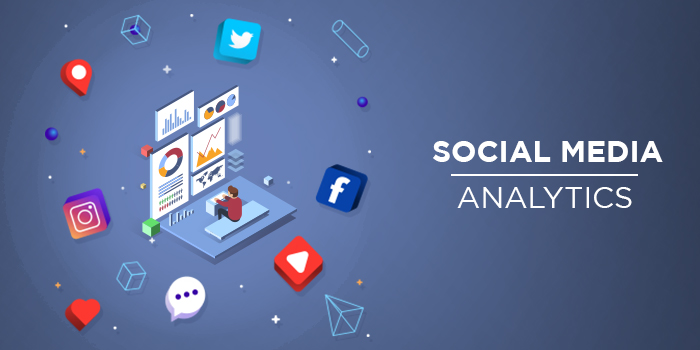Social media has become an indispensable tool for businesses looking to connect with their audience, build brand awareness, and drive engagement. In the ever-evolving landscape of social media, staying ahead requires not just a strong presence but also a strategic understanding of your performance. This is where social media analytics platforms come into play.
Best Social Media Analytics Platforms: Making Informed Decisions in the Digital Age

A. Definition of Social Media Analytics Platforms
Social Media Analytics Platforms are powerful tools designed to track, analyze, and interpret data related to your social media performance. From monitoring engagement metrics to understanding audience sentiment, these platforms provide valuable insights that can inform strategic decisions.
B. Importance of Social Media Analytics
In a world where every like, share, and comment matters, businesses cannot afford to ignore the importance of social media analytics. It goes beyond counting numbers; it’s about understanding what those numbers mean for your brand.
Key Features to Look for in Social Media Analytics Platforms
A. Real-time Monitoring
One of the key features to consider is real-time monitoring. The ability to track your social media performance as it happens allows for timely responses and adjustments to your strategy.
B. Engagement Metrics
Understanding how your audience engages with your content is crucial. Look for platforms that provide detailed engagement metrics, such as likes, shares, and comments, to gauge the effectiveness of your campaigns.
C. Sentiment Analysis
Sentiment analysis is the secret weapon of social media analytics. It helps you understand the emotions behind user interactions, giving you the insight needed to tailor your content accordingly.
D. Competitor Analysis
A comprehensive social media analytics platform should not only focus on your performance but also provide insights into your competitors’ strategies. This information is invaluable for staying one step ahead.
Best Social Media Analytics Platforms
A. AIM Insights
1. Overview
AIM Insights stands out for its user-friendly interface and robust analytics capabilities. It covers all major social media channels, providing a centralized hub for monitoring.
2. Unique Features
The platform offers advanced sentiment analysis and real-time collaboration features, making it a favorite among marketing teams.
3. User Reviews
Users praise AIM Insights for its accuracy in data reporting and the seamless integration of multiple social media accounts.
B. Brandwatch
1. Overview
Brandwatch focuses on in-depth competitor analysis, helping businesses understand market trends and adjust their strategies accordingly.
2. Unique Features
Its predictive analytics feature sets it apart, allowing businesses to anticipate trends and stay ahead of the curve.
3. User Reviews
Users commend Brandwatch for its comprehensive reporting tools and the ability to customize dashboards based on specific business needs.
C. Brand24
1. Overview
Brand24 excels in scalability, catering to both small businesses and large enterprises. Its modular design allows businesses to choose features based on their needs.
2. Unique Features
The platform’s AI integration provides actionable insights, making it a valuable asset for data-driven decision-making.
3. User Reviews
Businesses appreciate Brand24 for its affordability and flexibility to scale features as their social media presence grows.
How Social Analytics Platforms Benefit Businesses
A. Improved Decision Making
Social media analytics platforms empower businesses to make informed decisions. By understanding what works and what doesn’t, companies can refine their strategies for maximum impact.
B. Enhanced Customer Engagement
Knowing your audience is the key to engagement. Social media analytics platforms help businesses tailor their content to resonate with their target audience, fostering meaningful connections.
C. Competitive Advantage
In a competitive market, staying ahead is crucial. Social media analytics platforms provide the competitive edge needed to understand market trends and consumer behavior, allowing businesses to stay ahead of the competition.
Challenges
A. Data Security Concerns
While social media analytics platforms offer valuable insights, concerns about data security remain. Businesses need to choose platforms with robust security measures in place.
B. Integration with Existing Systems
Implementing a new analytics platform can be challenging, especially when integrating with existing systems. Choosing a platform that seamlessly integrates with your current tools is vital.
C. Cost Considerations
Cost is a significant factor for businesses, especially smaller ones. It’s essential to weigh the features offered by a platform against its cost to ensure a good return on investment.
Tips for Choosing the Right Social Analytics Platform
A. Define Your Goals
Before selecting a social media analytics platform, clearly define your goals. Whether it’s increasing brand awareness or driving sales, knowing your objectives will guide your choice.
B. Consider Scalability
Choose a platform that grows with your business. Scalability ensures that the platform remains effective as your social media presence expands.
C. User-Friendly Interface
A user-friendly interface is essential for maximizing the benefits of a social media analytics platform. Look for platforms that offer intuitive navigation and easy-to-understand reports.
D. Customer Support
Technical issues can arise, and having reliable customer support is crucial. Ensure the platform provides prompt assistance to address any concerns.
Future Trends
A. Artificial Intelligence Integration
The future of social media analytics lies in AI integration. Platforms leveraging AI can provide more accurate predictions and actionable insights.
B. Predictive Analytics
Predictive analytics will become more prevalent, allowing businesses to anticipate trends and proactively adjust their strategies.
C. Cross-Platform Integration
As businesses expand their presence across multiple platforms, social media analytics platforms will evolve to provide seamless cross-platform integration.
Conclusion
Social media analytics platforms are indispensable for businesses aiming to thrive in the digital age. From real-time monitoring to competitor analysis, these platforms offer a wealth of insights to inform strategic decision-making.
The ability to understand audience behavior, track engagement metrics, and stay ahead of market trends gives businesses a competitive advantage that cannot be overlooked.
Experience the Power of Social Media Analytics with AIM Technologies! Request a Demo today and unlock the full potential of your digital strategy.
FAQs
A. How do social media analytics platforms work?
- Social media analytics platforms work by collecting and analyzing data from various social media channels. They provide insights into engagement metrics, audience demographics, and sentiment analysis, helping businesses make informed decisions.
B. Can small businesses benefit from social media analytics?
- Absolutely. Social media analytics platforms cater to businesses of all sizes. Small businesses can use these tools to understand their audience, refine their content strategy, and compete effectively in the digital landscape.
C. Are there free social media analytics tools available?
- Yes, some social media analytics tools offer free versions with limited features. These can be a good starting point for businesses on a budget to understand the basics of their social media performance.
D. What metrics should businesses focus on in social media analytics?
- The metrics businesses should focus on depending on their goals. Common metrics include engagement rates, reach, and sentiment analysis. Businesses should align metrics with their objectives for a more targeted approach.
E. How often should companies analyze their social media data?
- The frequency of analysis depends on the business and its goals. However, regular analysis, whether weekly or monthly, is recommended to stay updated on performance trends and make timely adjustments.


